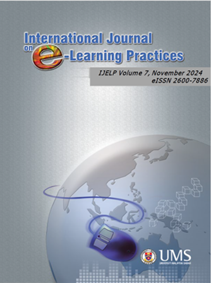EFFECTS OF GAMIFICATION ON ESL STUDENTS’ COMMUNICATIVE COMPETENCE AT SMK PEKAN TELIPOK
DOI:
https://doi.org/10.51200/ijelp.v7i1.5398Keywords:
gamification, ESL speaking, communicative competenceAbstract
The present study aims at finding out how the integration of gamification influences the ESL learners’ communicative competence in SMK Pekan Telipok, Sabah. This study sought to establish the effects of gamification; specifically, Role-Play and Charades on students’ engagement, motivation, and language acquisition than conventional ESL teaching approaches. Using a pretest and posttest with 40 Form Four students, the researcher randomly assigned students to an experimental and a control group. The data was collected by means of observation, pre and post tests, and semi-structured interviews. Based on the study, students in the experimental group who were exposed to gamified learning had a significantly enhanced level of learners’ engagement and communicative competence compared to students in the control group. The experimental group had a significant gain in fluency, accuracy, and interaction, thus supporting the use of gamification in language learning. Students of both high and low proficiency levels showed positive feedback during the interviews; the students enjoyed the gamified activities and felt less anxious and more motivated. The finding of this study indicates that the incorporation of gamification in ESL teaching and learning can enhance the learning process and bring better results. The findings of the study also have implications for curriculum, teacher education, and policy change that point to the need for new classroom practices that address the learners’ variability.






